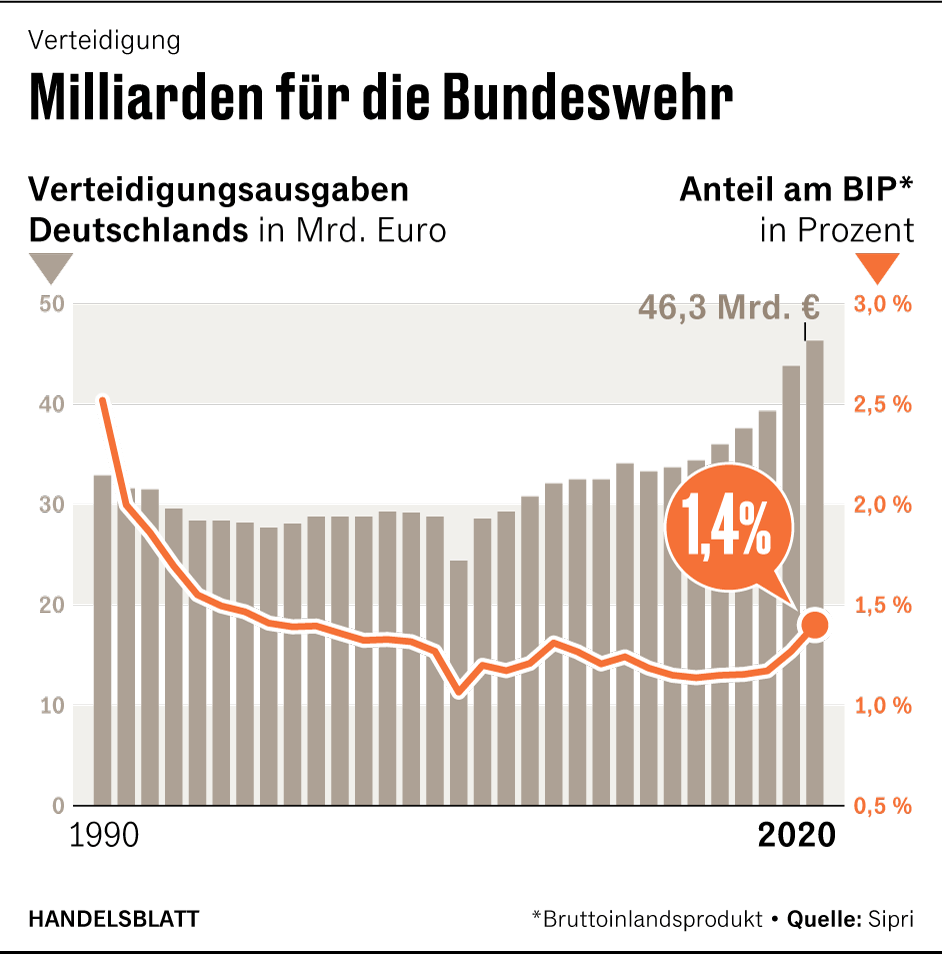Berlin Federal Defense Minister Christine Lambrecht is currently on a summer tour. The SPD politician convinces herself of the efficiency of the Bundeswehr throughout the country until August. But while Lambrecht was visiting the army’s combat training center in the Altmark on Monday, shots from his own coalition came from Berlin.
An incendiary letter sent on July 3 by FDP leader Christian Lindner to Lambrecht and Chancellor Olaf Scholz (SPD) became known, in which the finance minister complained about the “poor current condition of the armed forces”. In the letter from which the “Spiegel” quotes, Lindner calls for “profound and rapid reforms” when purchasing armaments. It must be ensured that the 100 billion euros from the special fund for the Bundeswehr can also be effectively spent.
For the defense minister, this is an affront, as the Bundestag had just passed a law to accelerate procurement in the Bundeswehr last Thursday. It was necessary to change structures and “substantially tighten procurement processes,” said Lambrecht during a visit to the troops in the Altmark. That is why she has already ensured that 20 percent of all orders from the Bundeswehr can be handled “privately”, i.e. without bureaucratic procurement procedures.
The security policy spokeswoman for the Greens, Sara Nanni, also joined the minister: The Ministry of Defense and the Bundeswehr procurement office in Koblenz, which has been criticized, are ready to take the necessary reform steps, she tweeted – and added to Lindner’s address: “A little more team spirit can’t hurt.”
Top jobs of the day
Find the best jobs now and
be notified by email.
On the other hand, Nannis party friend Sebastian Schäfer, chairman of the Greens in the budget committee, thinks that not enough has happened so far in the necessary reform of the procurement system: “Christian Lindner has already put his finger in the right wound with his letter,” he told the Handelsblatt.
Because one thing is clear: the 100 billion euros approved by the Bundestag are of little use to the Bundeswehr if the material does not reach the troops quickly. And this must also be in a condition that the material can also be used. This has been the case in the past.
Take the example of the “Puma” infantry fighting vehicle: Of the approximately 350 units in the Bundeswehr inventory, only around 50 meet the expectations of the military. The others have to be retrofitted at great expense. Take personal equipment as an example: Eight years of research went into designing the perfect backpack for the soldiers. Then Lambrecht stopped the project and bought equipment “off the shelf”.
Anyone who reads the Defense Ministry’s 15th armaments report, published in June, will encounter delays and a miraculous increase in costs. The first flight of the NH-90 MRFH frigate on-board helicopter is now expected for June 2023 – a good year later than assumed in the previous report from December 2021.
The costs for the airborne reconnaissance system “Pegasus” rose by 139 percent in the six months from the 14th to the 15th armaments report – from 642 million to 1.5 billion euros, as an attentive reader of the “Augengeradeaus” Internet portal determined.
Read more about better equipment for the Bundeswehr here
Procurement problems mean that only 9.3 billion euros of the 10.3 billion euros planned for armaments investments in the 2021 federal budget could be spent.
To counteract this, Lambrecht set up the procurement optimization task force in her ministry in March. She is hoping for improvements from the Procurement Acceleration Act, which was passed in early July and was led by Federal Economics Minister Robert Habeck (Greens).
It stipulates that several components, so-called lots, may be awarded together in tenders if this is justified for economic, technical or time reasons. In the case of joint European armaments projects, the group of participants can be limited to companies from the EU. States that do not offer the necessary guarantee for safeguarding Germany’s security interests can be excluded from the award procedure.
But the law does not yet solve the basic problems of the sluggish procurement system, believes the former military commissioner and current president of the Society for Security Policy (GSP), Hans-Peter Bartels: “It will not work without reforming the procurement authority in Koblenz,” he told the Handelsblatt. Bartels proposes that the responsibility for material maintenance, i.e. maintenance and repairs, be shifted back from the office to the army, air force and navy, which were previously responsible for this.
Housekeeper: It needs a ‘new spirit of procurement’
Even “everyday purchases” of simple or commercial goods, such as medical consumables, should be handed over to other procurement offices or the troops themselves. “The Koblenz office with its highly qualified engineers, lawyers and officers should concentrate on its core task: the development and procurement of weapon systems that are complex, often multinational and expensive and are at the extreme end of technological development,” says Bartels, who is always in the troop still held in high esteem.
Although the Acceleration Act that has been passed brings progress in the formal processes, the procurement structure and the awarding processes are not progressing, says Green Housekeeper Schäfer. “Without a real reform, a not inconsiderable part of the 100 billion euros from the special fund, to which there are other regular budget funds, threatens to fizzle out.”
A “new spirit of procurement” is needed, says SPD housekeeper Andreas Schwarz. “But not everyone has internalized this new way of thinking. This also applies to some departments of the procurement authority in Koblenz.”
According to a traffic light politician, the Social Democrats are partly responsible for this. In internal meetings, both Defense Minister Lambrecht and SPD budget and defense politicians showed little willingness to restructure the procurement office. “The social democratic hand is held over Koblenz.”
The procurement office itself has submitted a paper outlining possible reforms. One suggestion: Bundeswehr inspectors should again be much more involved in the procurement process, and procurement should again be more user-centric. The proposal makes sense, says an old SPD defense expert. However, this is only a return to previous practice, and it is certainly not the major reform project.
Henning Otte (CDU), deputy chairman of the Bundestag’s Defense Committee, demands that Defense Minister Lambrecht must finally tackle the issue decisively: “In the grand coalition, the SPD has always put the brakes on procurement reforms,” he told the Handelsblatt. Now the defense minister must finally put her words into action.
More: For five billion euros: Bundeswehr gets transport helicopter CH-47F

